
Pulau Pangkor: Malaysia's Serene Island Escape
Pulau Pangkor is a small island located off the west coast of Malaysia. It is known for its beautiful beaches, clear waters, and laid-back atmosphere. This tranquil island is a perfect escape from the hustle and bustle of city life. Here, you can relax on sandy shores, explore lush forests, and enjoy fresh seafood. Nipah Bay is one of the most popular beaches on the island. It offers clear waters perfect for swimming and snorkeling. You can also take a boat trip to nearby islands or go fishing. Coral Bay is another beautiful spot with its calm waters and stunning sunsets. Pulau Pangkor is also home to cultural and historical sites. The Dutch Fort, built in the 17th century, is a must-visit. Nearby, you can find the Batu Bersurat, a boulder with ancient inscriptions. For a taste of local life, visit the traditional fishing villages. Here, you can see colorful wooden boats and buy fresh seafood. Whether you are looking to relax on the beach, explore nature, or learn about local history, Pulau Pangkor has something for everyone.
Local tips in Pulau Pangkor
- Visit during weekdays to avoid crowds, as it can get busy on weekends.
- Rent a scooter to explore the island at your own pace.
- Try the local seafood, especially the fresh fish and prawns.
- Bring insect repellent to protect against mosquitoes, especially in the evening.
- Don't miss the sunset at Coral Bay; it's a breathtaking experience.
Pulau Pangkor: Malaysia's Serene Island Escape
Pulau Pangkor is a small island located off the west coast of Malaysia. It is known for its beautiful beaches, clear waters, and laid-back atmosphere. This tranquil island is a perfect escape from the hustle and bustle of city life. Here, you can relax on sandy shores, explore lush forests, and enjoy fresh seafood. Nipah Bay is one of the most popular beaches on the island. It offers clear waters perfect for swimming and snorkeling. You can also take a boat trip to nearby islands or go fishing. Coral Bay is another beautiful spot with its calm waters and stunning sunsets. Pulau Pangkor is also home to cultural and historical sites. The Dutch Fort, built in the 17th century, is a must-visit. Nearby, you can find the Batu Bersurat, a boulder with ancient inscriptions. For a taste of local life, visit the traditional fishing villages. Here, you can see colorful wooden boats and buy fresh seafood. Whether you are looking to relax on the beach, explore nature, or learn about local history, Pulau Pangkor has something for everyone.
When is the best time to go to Pulau Pangkor?
Iconic landmarks you can’t miss
Dutch Fort
Explore the Dutch Fort on Pangkor Island, a captivating historical landmark showcasing colonial architecture and stunning coastal views.
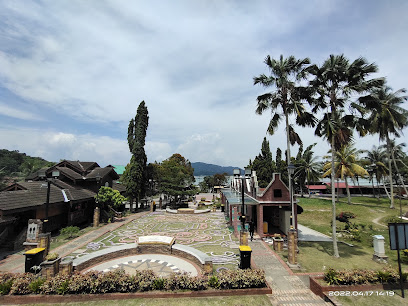
Teluk Nipah Beach
Experience the breathtaking beauty and vibrant atmosphere of Teluk Nipah Beach, a tropical paradise on Pangkor Island, Malaysia.
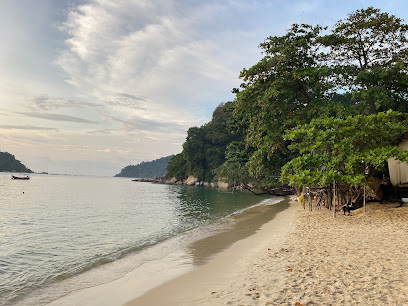
Pangkor Coral Bay Resort
Discover tranquility at Pangkor Coral Bay Resort, where stunning beaches meet lush landscapes on Malaysia's beautiful Pangkor Island.
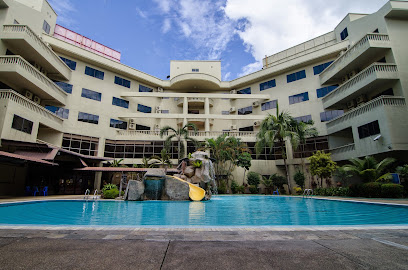
Pangkor Island
Discover the enchanting beauty of Pangkor Island, a tropical paradise in Malaysia, offering stunning beaches, rich culture, and unforgettable adventures.
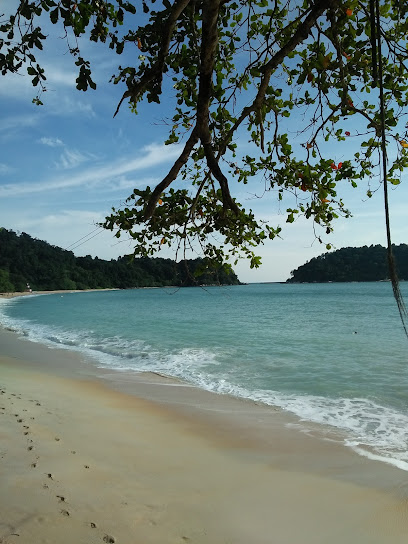
Pasir Bogak Beach
Unwind at Pasir Bogak Beach, Pulau Pangkor: Soft sands, clear waters, and vibrant marine life await your discovery in this tropical paradise.
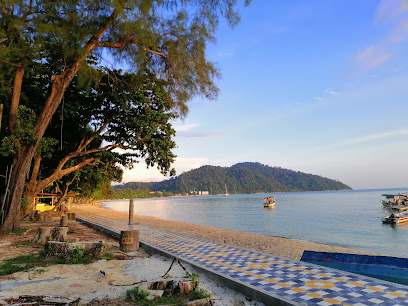
Puteri Bayu Beach Resort
Discover the serene beauty of Puteri Bayu Beach Resort, a perfect blend of relaxation and adventure on the stunning shores of Pangkor Island.

Pangkor Sandy Beach Resort
Experience the ultimate tropical escape at Pangkor Sandy Beach Resort, where pristine beaches and luxurious accommodations await your arrival.

Anjungan Beach Resort & Spa Pangkor
Discover the idyllic charm of Anjungan Beach Resort & Spa in Pangkor Island, where relaxation meets adventure amidst stunning natural beauty.
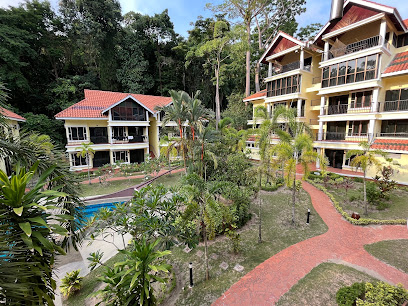
Fu Lin Kong Temple 福臨宫
Experience the serene beauty and cultural richness of Fu Lin Kong Temple, a hidden gem on Pangkor Island that draws visitors into Malaysia's Taoist heritage.
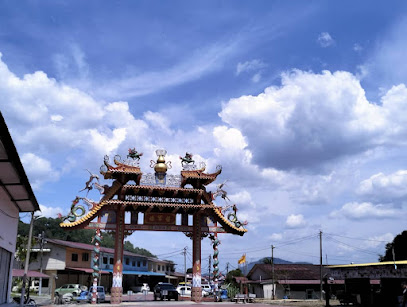
Sri Pathira Kaliamman Temple
Discover the spiritual serenity of Sri Pathira Kaliamman Temple on Pangkor Island, a vibrant Hindu sanctuary by the sea offering cultural richness and tranquility.
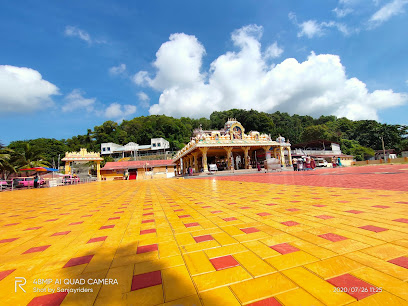
Nipah Bay Villa
Relax in the serene beauty of Nipah Bay Villa, where comfort meets nature on the stunning island of Pulau Pangkor.
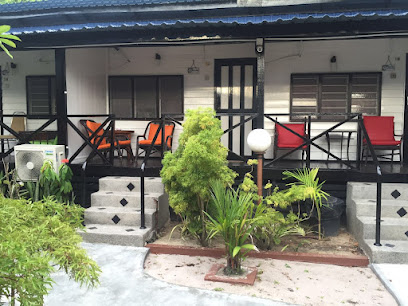
Masjid Terapong Pulau Pangkor
Experience the tranquility and beauty of Masjid Terapong Pulau Pangkor, Malaysia's stunning floating mosque amidst serene waters.
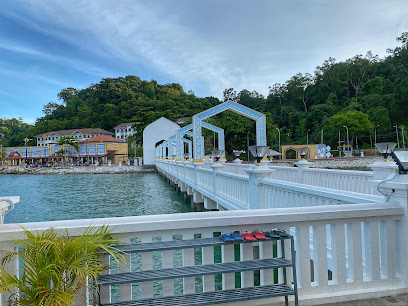
Hai Seng Hin Pangkor Sdn Bhd
Experience the authentic taste of Pangkor Island at Hai Seng Hin Pangkor Sdn Bhd, where local flavors and culinary traditions come alive.
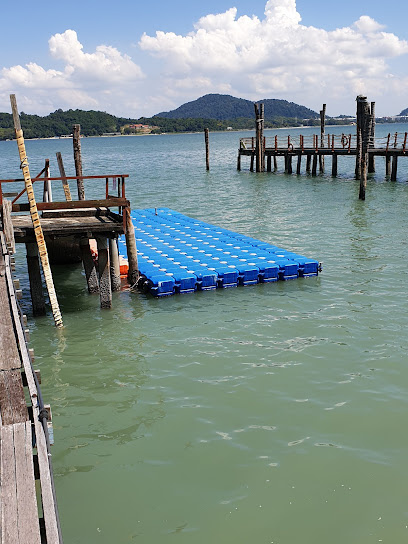
Pangkor Village Beach Resort
Experience tranquil luxury and breathtaking natural beauty at Pangkor Village Beach Resort, your perfect tropical getaway on Pangkor Island.
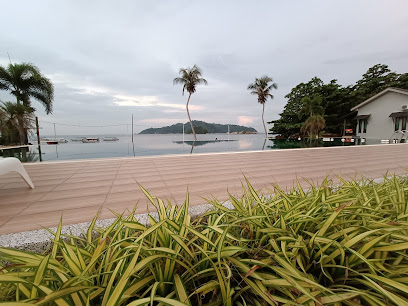
Pangkor Laut Island
Experience the breathtaking beauty and tranquility of Pangkor Laut Island, a tropical paradise in Perak, Malaysia with stunning beaches and lush rainforests.
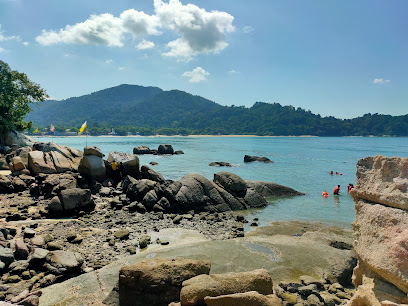
Unmissable attractions to see
Dutch Fort
Explore the Dutch Fort on Pangkor Island, a historical landmark that reveals the rich colonial heritage and breathtaking views of Malaysia's coast.
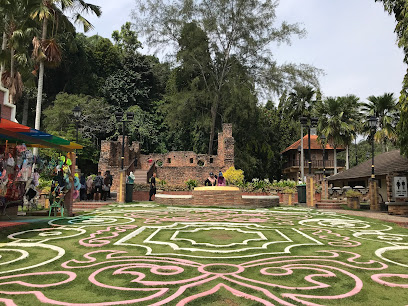
Teluk Nipah Beach
Experience the idyllic charm of Teluk Nipah Beach, a breathtaking destination on Pangkor Island, perfect for relaxation and adventure.
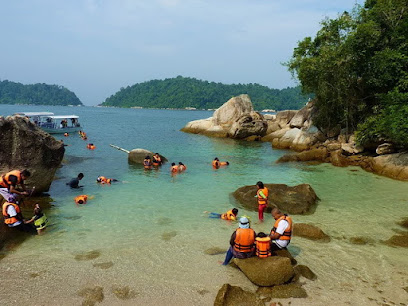
Pasir Bogak Beach
Experience the charm of Pasir Bogak Beach, where golden sands meet azure waters, creating a tropical oasis for relaxation and adventure on Pulau Pangkor.
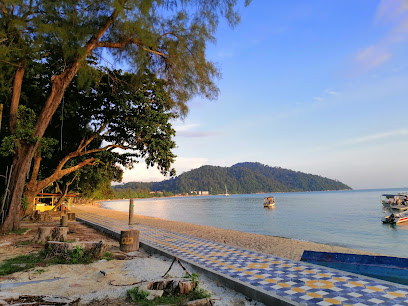
Fu Lin Kong Temple 福臨宫
Explore the tranquility and cultural richness of Fu Lin Kong Temple, a hidden gem on picturesque Pangkor Island, Malaysia.
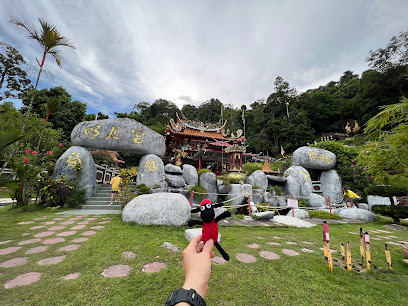
Coral Beach
Experience the serene beauty of Coral Beach on Pangkor Island, a tropical paradise perfect for relaxation, adventure, and stunning sunsets.
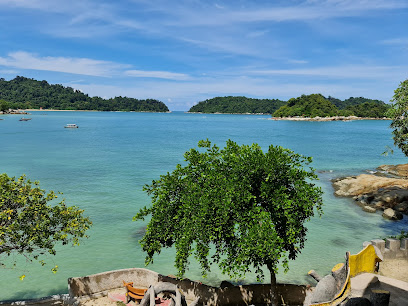
Lin Je Kong Temple
Explore the serene beauty and spiritual significance of Lin Je Kong Temple, a captivating Buddhist sanctuary on Pangkor Island.
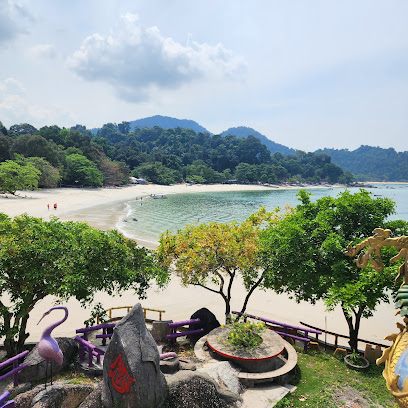
Pasir Bogak Lookout Point
Discover the stunning vistas of Pasir Bogak Lookout Point on Pangkor Island, a must-visit destination for nature lovers and photography enthusiasts.
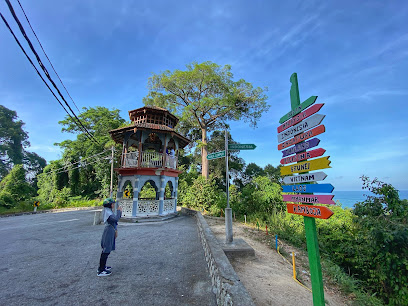
Hornbill Feeding
Discover the enchanting Hornbill Feeding experience in Teluk Nipah, Pangkor Island - a must-see for wildlife lovers and adventure seekers.
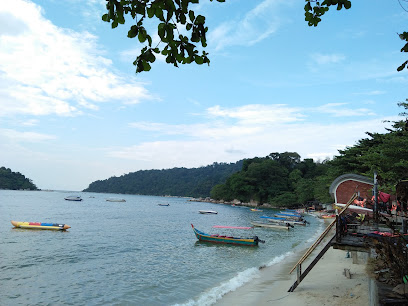
Galeri Pangkor
Explore the rich history and culture of Pulau Pangkor at Galeri Pangkor, a local museum filled with fascinating exhibits and artifacts.
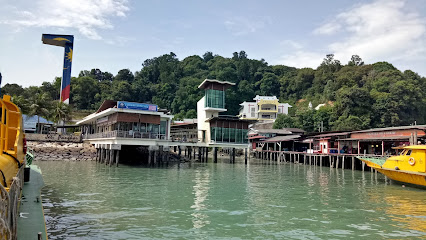
Pantai Teluk Dalam
Experience the serene beauty and tranquility of Pantai Teluk Dalam, a hidden gem on Pangkor Island, perfect for relaxation and exploration.
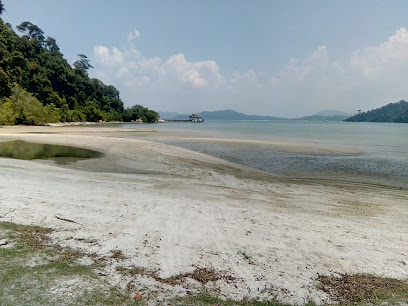
Teluk Ketapang Lookout Point ( Pulau Pangkor, Perak )
Discover the scenic beauty of Teluk Ketapang Lookout Point on Pulau Pangkor, where stunning views and tranquility await every traveler.
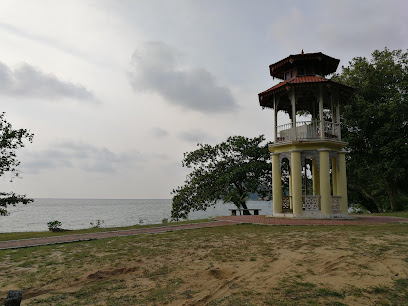
Pangkor Hill
Experience breathtaking views and lush greenery at Pangkor Hill, a serene park on Pangkor Island, perfect for nature lovers and adventure seekers.
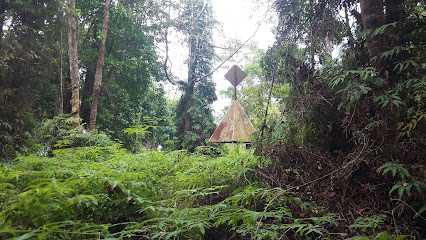
Teluk Rimau
Experience the beauty and tranquility of Teluk Rimau, a stunning beach destination on Pangkor Island, perfect for relaxation and exploration.
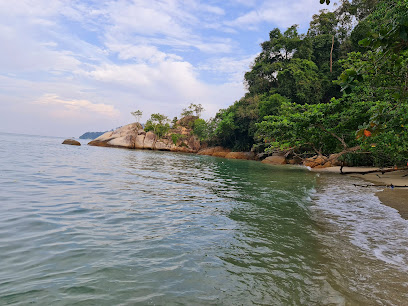
Pankor sea
Discover the breathtaking beauty and tranquility of Pankor Sea on Pangkor Island, where adventure meets relaxation in Malaysia's tropical paradise.
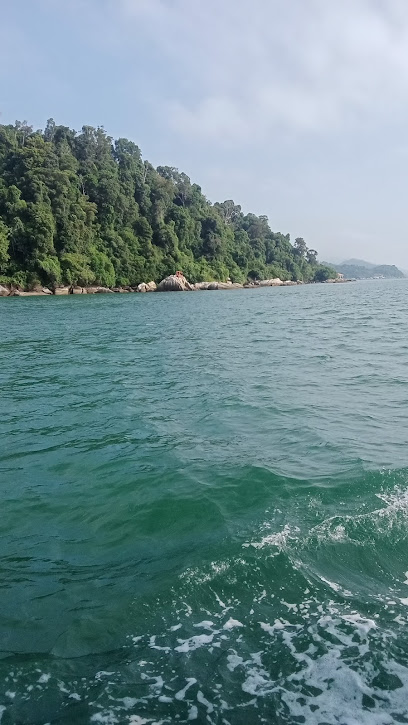
Angle see beach
Experience the tranquility of Angle See Beach on Pangkor Island, where soft sands and clear waters create a perfect tropical escape for travelers.
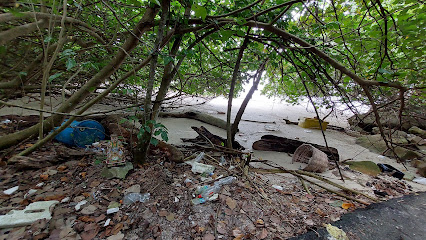
Essential places to dine
Daddy’s Cafe
Experience mouthwatering cuisine with breathtaking sunset views at Daddy's Cafe on Pangkor Island.
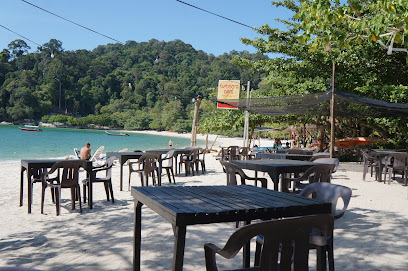
Nipah Deli
Experience the delightful fusion of Indian and Malaysian cuisine at Nipah Deli on Pangkor Island.
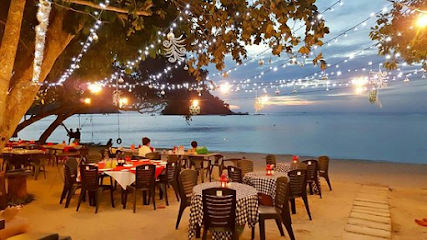
Restoran Pasir Bogak
Experience authentic Malaysian seafood at Restoran Pasir Bogak on beautiful Pangkor Island - a culinary journey not to be missed!
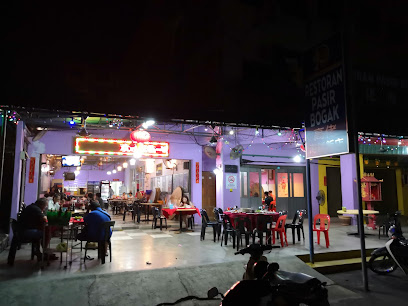
Indian Restoran Malar Curry House
Discover authentic Indian cuisine at Malar Curry House in Pulau Pangkor - a culinary delight awaits amidst tropical beauty.
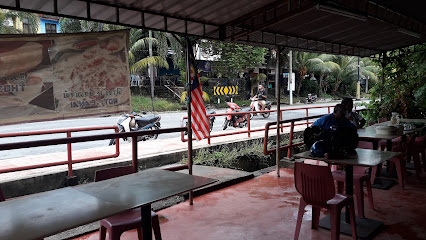
KAFE & RESTORAN PORTUGAL STYLE BBQ FISH
Experience authentic Portuguese-style barbecue fish on Pangkor Island at KAFE & RESTORAN PORTUGAL STYLE BBQ FISH – where flavors come alive!
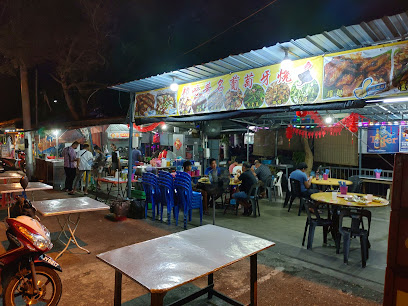
Chao Sheng Seafood Restaurant
Discover fresh seafood delights at Chao Sheng Seafood Restaurant on Pangkor Island - where local flavors meet unforgettable dining experiences.
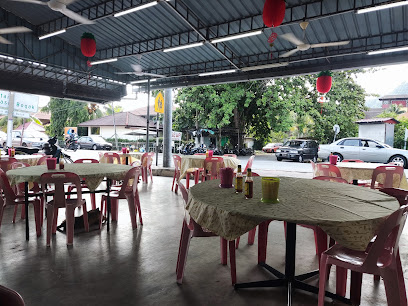
Chef Makbul Kitchen
Discover authentic halal Malaysian cuisine at Chef Makbul Kitchen on Pangkor Island - where flavors meet tradition.
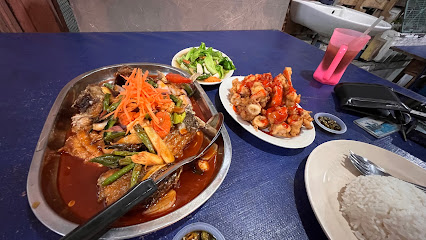
Wang Wang Seafood Restaurant
Discover authentic Malaysian seafood at Wang Wang Seafood Restaurant on Pangkor Island, where fresh flavors meet warm hospitality.
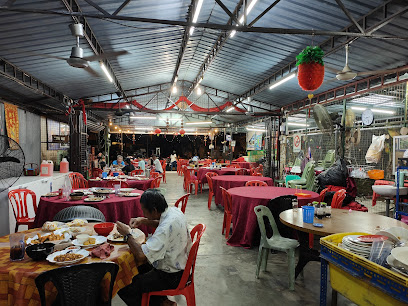
Hassan Restaurant
Discover authentic Malaysian cuisine at Hassan Restaurant on Pangkor Island - where every meal is an unforgettable experience.
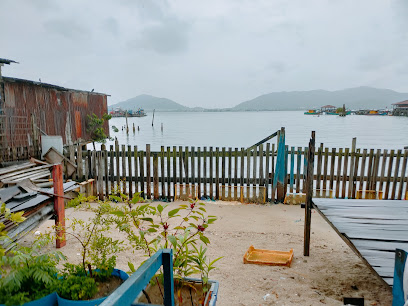
Coco Restaurant
Experience fresh seafood delights at Coco Restaurant in Pasir Bogak, where every dish celebrates the flavors of Malaysia's coast.
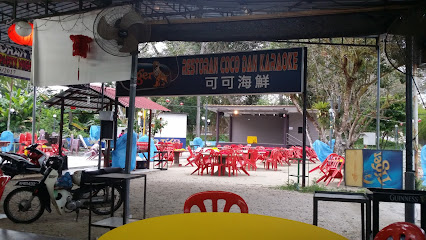
Restoran Ye Lin
Discover authentic Malaysian cuisine at Restoran Ye Lin on Pangkor Island, where fresh seafood meets stunning island views.
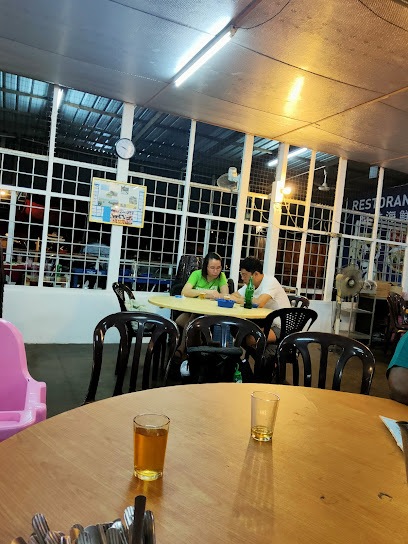
Sea Moon Cafe
Experience local flavors at Sea Moon Cafe in Pulau Pangkor – where delightful dishes meet stunning island views.
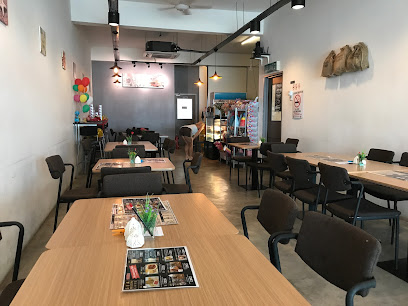
Fong Leong Restaurant
Experience authentic Chinese flavors at Fong Leong Restaurant on Pangkor Island - a culinary delight amidst stunning tropical scenery.
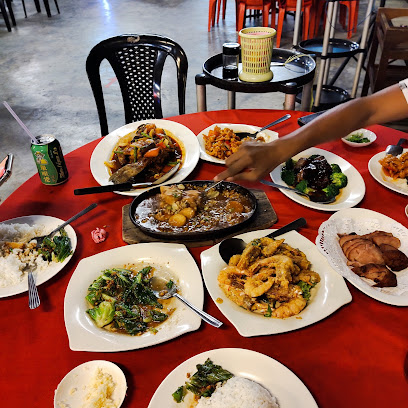
Seng Fatt
Discover authentic Malaysian flavors at Seng Fatt Restaurant on beautiful Pangkor Island - a culinary delight awaits every visitor.
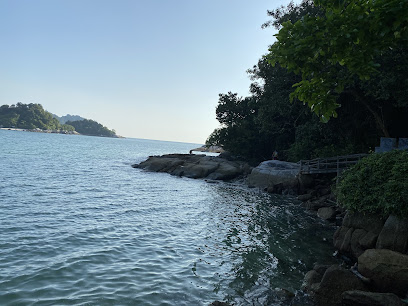
老汉茶餐室 Rao Han Restaurant
Experience authentic Malaysian cuisine at Rao Han Restaurant on Pulau Pangkor – where delicious flavors meet warm hospitality.
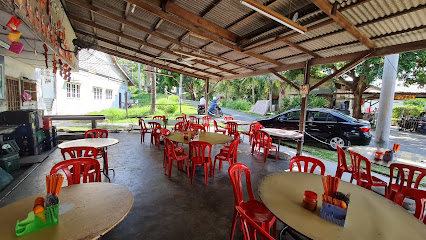
Markets, malls and hidden boutiques
CK DUTY FREE
Discover unbeatable deals on luxury goods at CK Duty Free in Pangkor, where shopping meets paradise.
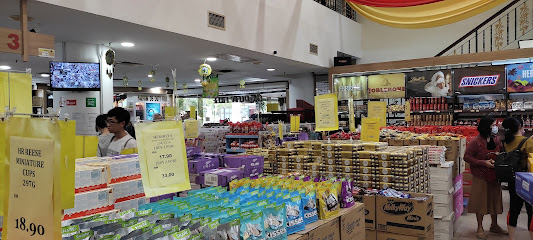
The Island Shop
Discover the ultimate duty-free shopping experience at The Island Shop on Pangkor Island, where souvenirs and local treasures await every traveler.
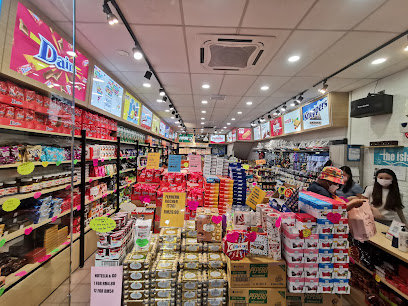
Coco Valley Duty Free Pangkor
Explore Coco Valley Duty Free Pangkor for an exceptional shopping experience featuring luxury goods, local specialties, and unbeatable prices on beautiful Pangkor Island.
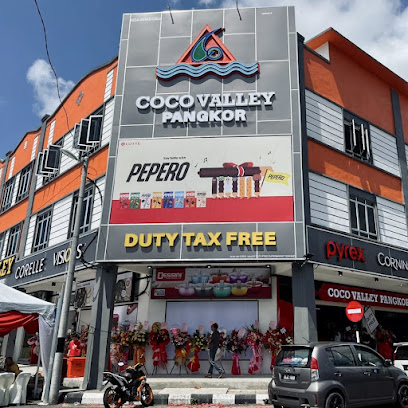
CK Supersave Mart
Explore the diverse offerings of CK Supersave Mart in Pulau Pangkor, where local flavors meet everyday essentials in a vibrant shopping experience.
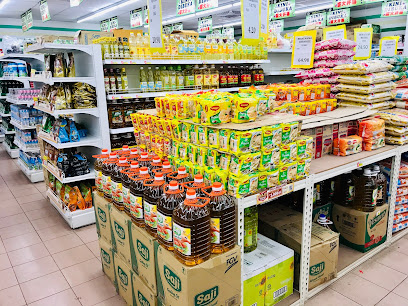
Gen E Enterprise新世代企业
Discover the best in electronics at Gen E Enterprise, a leading boutique store on Pangkor Island, blending technology with exceptional service.
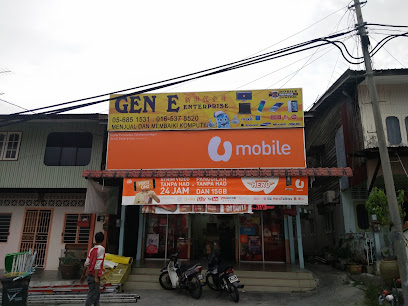
Pangkor Special Corner Duty Free
Explore unbeatable deals on luxury goods and local treasures at Pangkor Special Corner Duty Free, your ultimate shopping destination on Pulau Pangkor.
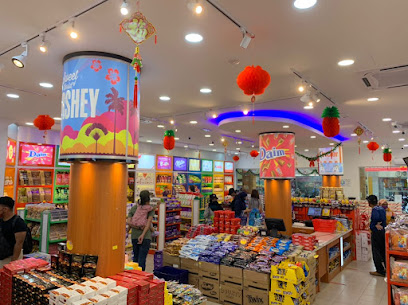
Pangkor Sun Duty Free
Explore unbeatable prices and a wide selection of luxury goods at Pangkor Sun Duty Free on Pangkor Island.
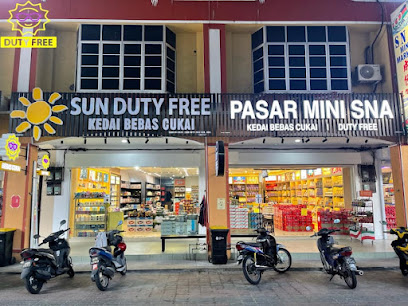
Teow Soon Huat Duty Free Sdn Bhd Teluk Nipah
Discover exceptional deals on luxury goods and local treasures at Teow Soon Huat Duty Free in Teluk Nipah, a shopper's paradise on Pangkor Island.
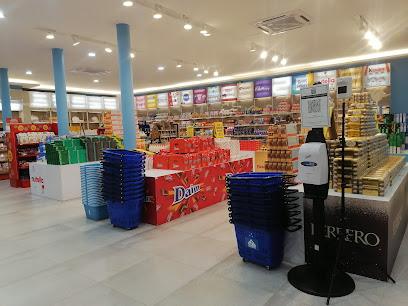
SP Duty Free Pangkor
Discover amazing duty-free shopping at SP Duty Free Pangkor on the beautiful Pangkor Island, where luxury meets affordability in a tropical paradise.
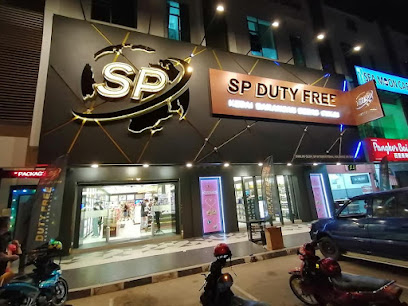
家香海产Jia Xiang Home
Savor the freshest seafood and discover the culinary culture of Pangkor Island at Jia Xiang Home Seafood.
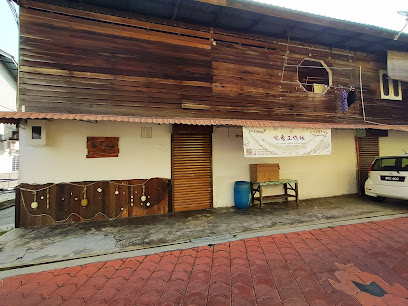
Chuang Khor Enterprise
Explore Chuang Khor Enterprise on Pangkor Island for an unbeatable duty-free shopping experience with a wide range of products at incredible prices.
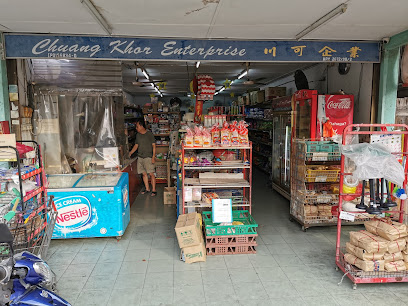
SNA Mini Mart Pangkor - Duty Free
Discover unbeatable duty-free deals at SNA Mini Mart Pangkor, your one-stop shop for unique gifts and souvenirs on this tropical paradise.
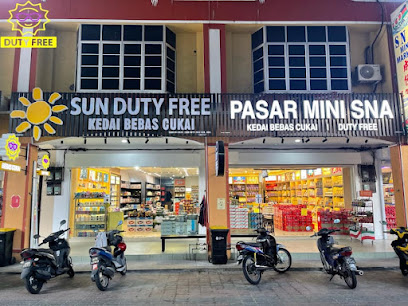
Fresda
Explore local flavors and essentials at Fresda, the charming grocery store on Pangkor Island, Malaysia, perfect for all your travel needs.
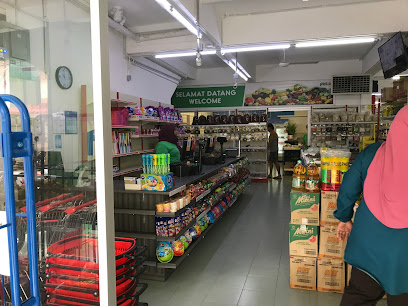
Naidu stole pangkor Island perak
Explore Naidu Stole Pangkor Island, where unique fashion meets local culture in the heart of Pulau Pangkor, Perak.
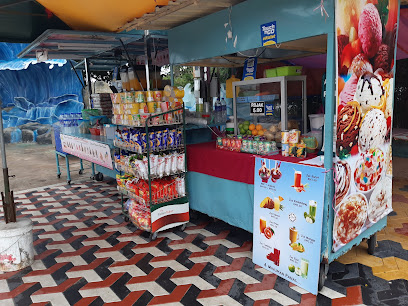
E Fresh Trading
Discover unbeatable deals and local treasures at E Fresh Trading, the premier duty-free store on picturesque Pangkor Island, Malaysia.
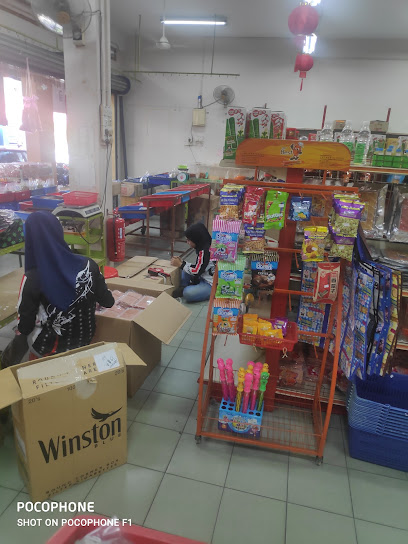
Essential bars & hidden hideouts
Daddy’s Cafe
Discover the culinary delights at Daddy’s Cafe, a vibrant restaurant in Teluk Nipah, Pangkor Island, known for its delicious pizzas and stunning views.
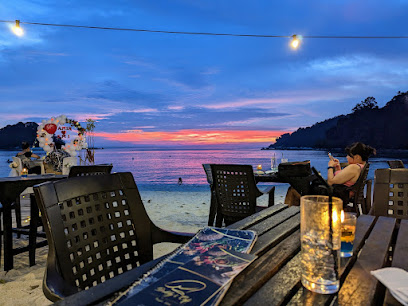
KAFE & RESTORAN PORTUGAL STYLE BBQ FISH
Experience the vibrant flavors of Portuguese BBQ fish at KAFE & RESTORAN, a culinary gem on Pulau Pangkor perfect for seafood lovers.
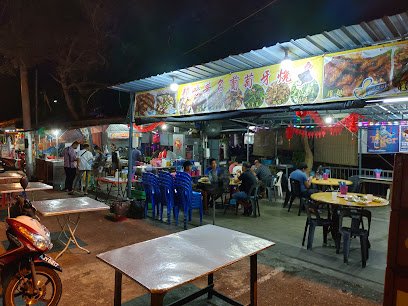
Coco Restaurant
Discover the flavors of the sea at Coco Restaurant, a delightful seafood destination on Pangkor Island, perfect for family gatherings and scenic views.
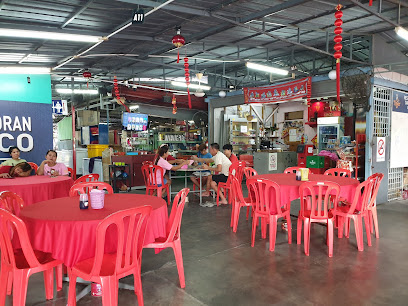
Sea Moon Cafe
Discover the flavors of Malaysia at Sea Moon Cafe, a cozy dining spot on Pulau Pangkor offering a delightful blend of local and international cuisine.
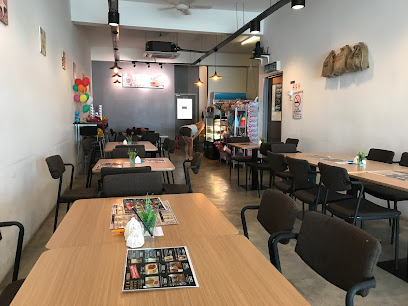
Royal Bay Beach Club
Discover blissful relaxation and vibrant social scenes at the Royal Bay Beach Club in Pangkor Laut Resort, a true paradise for beach lovers.
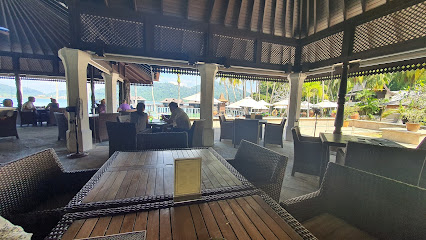
Fisherman's Cove
Discover the exquisite flavors of Fisherman's Cove on Pangkor Laut Island, where fine dining meets breathtaking natural beauty.
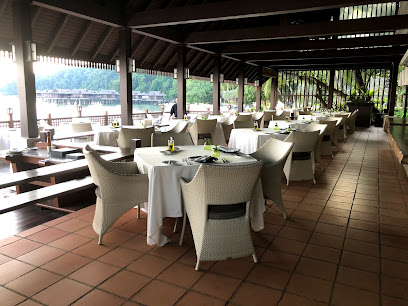
Street Stall Burger,Western & Thai Food
Discover the delicious fusion of Western and Thai cuisine at Street Stall Burger on Pangkor Island, a must-visit for every food lover.
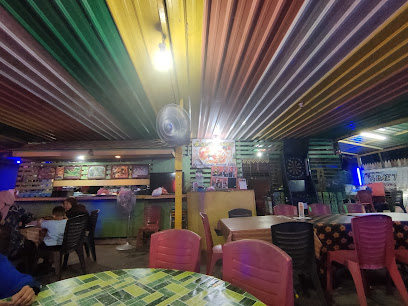
No... Juz no
Experience the vibrant flavors of Malaysia at No... Juz no, a must-visit restaurant in Pangkor Island's Teluk Nipah, perfect for all food lovers.
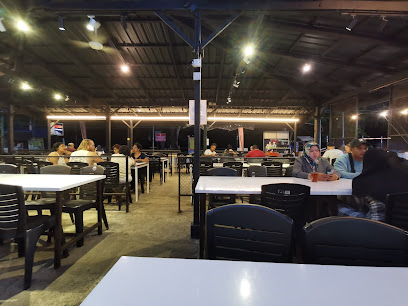
Meowktv karaoke pangkor
Experience the vibrant nightlife at Meowktv Karaoke Pangkor—where every night is a karaoke night under the stars.
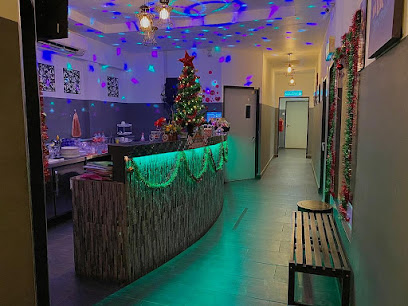
Captain II cafe
Experience the vibrant ambiance of Captain II Cafe, where fine wines, delicious Western cuisine, and karaoke fun come together on Pangkor Island.
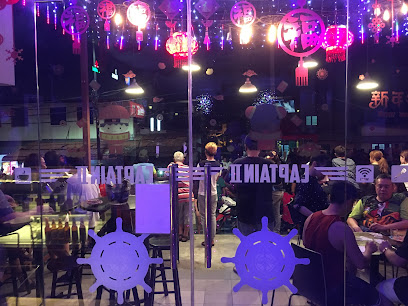
Zul Corner No. 7
Experience the freshest seafood delights at Zul Corner No. 7 on Pangkor Island, where local flavors meet stunning coastal views.
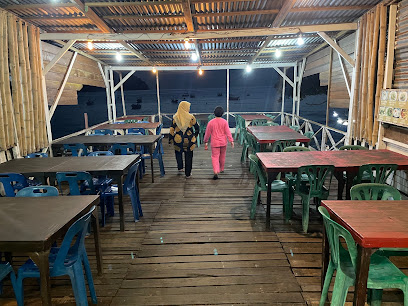
Young World Cafe
Experience the lively ambiance and delightful menu at Young World Cafe, the perfect pub for tourists in Pangkor Island.
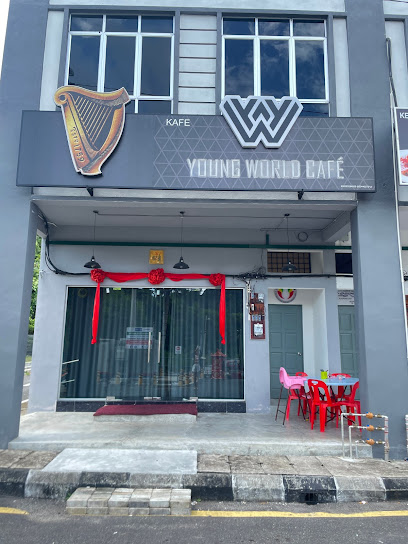
Haida kafeteria
Experience authentic Malaysian cuisine at Haida Kafeteria, a cozy eatery in Pulau Pangkor with a delightful menu that showcases local flavors.
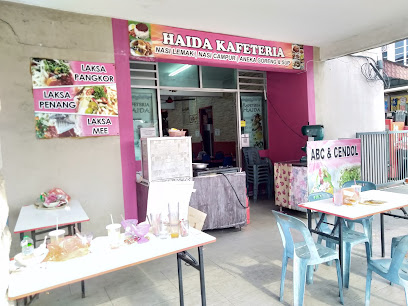
The Straits
Experience exquisite fine dining at The Straits, where local flavors meet stunning ocean views in Pangkor Laut, Perak.
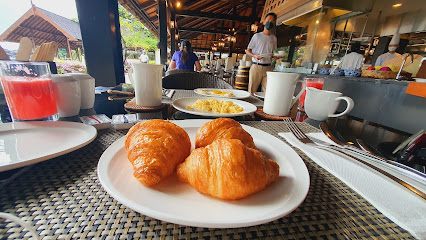
Local Phrases about Pulau Pangkor
-
- HelloSelamat petang
[suh-lah-maht peh-tang] - GoodbyeSelamat tinggal
[suh-lah-maht ting-gahl] - YesYa
[yah] - NoTidak
[tee-dahk] - Please/You're welcomeTolong
[toh-long] - Thank youTerima kasih
[teh-ree-mah kah-seeh] - Excuse me/SorryMaaf
[mah-ahf] - How are you?Apa khabar?
[ah-pah kah-bahr] - Fine. And you?Baik. Dan awak?
[bah-ee-k. dahn ah-wahk] - Do you speak English?Boleh bercakap dalam Bahasa Inggeris?
[boh-leh buhr-chah-kahp dah-lahm bah-hah-sah eeng-geh-rees] - I don't understandSaya tak faham
[sah-yah tahk fah-hahm]
- HelloSelamat petang
-
- I'd like to see the menu, pleaseSaya ingin melihat menu, sila
[sah-yah een-geen meh-lee-haht meh-noo, see-lah] - I don't eat meatSaya tidak makan daging
[sah-yah tee-dahk mah-kahn dah-yee-ng] - Cheers!Salam sejahtera!
[sah-lahm seh-jah-teh-rah] - I would like to pay, pleaseSaya ingin membayar, sila
[sah-yah een-geen muhm-bah-yahr, see-lah]
- I'd like to see the menu, pleaseSaya ingin melihat menu, sila
-
- Help!Tolong!
[toh-long] - Go away!Pergi jauh!
[pehr-gee jah-oo] - Call the Police!Panggil polis!
[pahng-geel poh-lis] - Call a doctor!Panggil doktor!
[pahng-geel dohk-tohr] - I'm lostSaya sesat
[sah-yah suh-saht] - I'm illSaya sakit
[sah-yah sah-keet]
- Help!Tolong!
-
- I'd like to buy...Saya ingin membeli...
[sah-yah een-geen muhm-buh-lee] - I'm just lookingSaya hanya melihat
[sah-yah hun-yah meh-lee-haht] - How much is it?Berapa harganya?
[beh-rah-pah har-gahn-yah] - That's too expensiveItu terlalu mahal
[ee-too teh-rah-lah moo-hahl] - Can you lower the price?Boleh kurangkan harga?
[boh-leh koo-rang-kahn har-gah]
- I'd like to buy...Saya ingin membeli...
-
- What time is it?Pukul berapa sekarang?
[poo-kool beh-rah-pah suh-kah-rahng] - It's one o'clockPukul satu
[poo-kool sah-too] - Half past (10)Setengah (sepuluh)
[suh-tuh-ngah (suh-poo-loo)] - MorningPagi
[pah-gee] - AfternoonPetang
[peh-tang] - EveningMalam
[mah-lahm] - YesterdaySemalam
[suh-mah-lahm] - TodayHari ini
[hah-ree ee-nee] - TomorrowEsok
[eh-sohk] - 1Satu
[sah-too] - 2Dua
[doo-ah] - 3Tiga
[tee-gah] - 4Empat
[uhm-paht] - 5Lima
[lee-mah] - 6Enam
[eh-nahm] - 7Tujuh
[too-joo] - 8Lapan
[lah-pahn] - 9Sembilan
[suhm-bee-lahn] - 10Sepuluh
[suh-poo-loo]
- What time is it?Pukul berapa sekarang?
-
- Where's a/the...?Di mana...
[dee mah-nah] - What's the address?Berapakah alamatnya?
[beh-rah-pah-kah ah-lah-maht-nyah] - Can you show me (on the map)?Boleh tunjukkan saya (pada peta)?
[boh-leh toon-jook-kahn sah-yah (pah-dah peh-tah)] - When's the next (bus)?Bila bas seterusnya?
[bee-lah bahs suh-teh-roos-nyah] - A ticket (to ....)Satu tiket (ke ....)
[sah-too tee-keht (keh)]
- Where's a/the...?Di mana...
History of Pulau Pangkor
-
Pulau Pangkor, located off the west coast of Peninsular Malaysia, has a rich early history. The island was originally inhabited by indigenous Malay fishing communities who lived in harmony with the lush natural surroundings. The name 'Pangkor' is derived from the Thai 'Pang Ko,' meaning 'Beautiful Island,' reflecting its timeless allure.
-
In the 17th century, Pulau Pangkor became a strategic point for maritime trade routes in the Strait of Malacca. Unfortunately, this also attracted pirates who used the island as a base to launch attacks on merchant ships. The island's sheltered bays and hidden coves provided perfect hiding spots for these seafaring raiders.
-
In the mid-17th century, the Dutch established a foothold on Pulau Pangkor to protect their trade interests in the region. The Dutch Fort, constructed in 1670, stands as a testament to this era. The fort was built to defend against pirates and other colonial powers. Today, its ruins offer a glimpse into the island's colonial past.
-
One of the most significant events in the island's history is the signing of the Pangkor Treaty in 1874. This treaty between the British and the Sultan of Perak marked the beginning of British colonial influence in the Malay Peninsula. The treaty was a pivotal moment in Malaysian history, leading to the establishment of the British Resident system.
-
During World War II, Pulau Pangkor, like much of Southeast Asia, fell under Japanese occupation. The island was used as a strategic point by the Japanese military. The local population endured hardships during this period, but their resilience contributed to the rich tapestry of the island's history.
-
After Malaysia gained independence in 1957, Pulau Pangkor began to transform into a popular tourist destination. Fishing remained an important industry, but tourism started to play a significant role in the island's economy. Modern amenities and infrastructure were developed, while efforts were made to preserve the island's natural beauty and cultural heritage.
-
Pulau Pangkor is a melting pot of cultures, with Malay, Chinese, and Indian communities contributing to a vibrant cultural tapestry. Traditional festivals, such as Hari Raya, Chinese New Year, and Deepavali, are celebrated with great enthusiasm. The island is also known for its seafood cuisine, particularly dried fish products, which are a local specialty.
Pulau Pangkor Essentials
-
Pulau Pangkor is located off the west coast of Peninsular Malaysia in the state of Perak. The nearest international airport is Sultan Azlan Shah Airport in Ipoh, approximately 85 kilometers away. From Ipoh, you can take a taxi or a bus to Lumut, the coastal town where ferries to Pulau Pangkor depart. The bus journey typically takes around 1.5 to 2 hours. Alternatively, you can drive to Lumut and park your car in the secure parking facilities near the ferry terminal. The ferry ride from Lumut to Pulau Pangkor takes about 30-40 minutes.
-
Pulau Pangkor is a small island, and many of its attractions can be reached by walking or cycling. Bicycles and motorbikes are available for rent at various locations on the island. For longer distances, you can use the local pink taxis, which are easily recognizable and relatively inexpensive. Car rentals are also available, but keep in mind that the roads are narrow and winding. Public buses are limited on the island, so taxis and rental vehicles are the most convenient options.
-
The official currency of Malaysia is the Malaysian Ringgit (MYR). Credit cards are accepted in most hotels, restaurants, and larger shops, but it is advisable to carry cash, especially when visiting smaller establishments and markets. ATMs are available in Pulau Pangkor, but it's a good idea to withdraw sufficient cash before arriving on the island to avoid any inconvenience.
-
Pulau Pangkor is generally considered a safe destination for tourists. However, like any travel destination, it's important to take standard precautions. Avoid walking alone late at night in unfamiliar areas and keep an eye on your belongings in crowded places. There are no specific high-crime areas targeting tourists, but staying vigilant and aware of your surroundings is always recommended.
-
In case of emergency, dial 999 for immediate assistance. The local police station and medical clinics are available on the island. It is recommended to have travel insurance that covers medical emergencies. For minor health issues, there are pharmacies on the island where you can purchase over-the-counter medications. The nearest hospital is located in Lumut on the mainland, which can be reached by ferry.
-
Fashion: Do dress modestly, especially when visiting religious and cultural sites. Avoid wearing overly revealing clothing. Religion: Do respect local customs and traditions. When visiting mosques, dress conservatively and remove your shoes before entering. Public Transport: Do be courteous and respectful to taxi drivers and other public transport operators. Don't litter inside vehicles. Greetings: Do greet people with a smile or a slight nod. A handshake is common, but be mindful of cultural sensitivities, especially with the opposite gender. Eating & Drinking: Do try local delicacies and accept food offerings graciously. Don't refuse hospitality, as it is considered impolite.
-
To experience Pulau Pangkor like a local, visit the local markets where you can buy fresh seafood and traditional Malaysian snacks. Engage with locals, as they are often friendly and willing to share stories about the island's history and culture. Don't miss visiting the Dutch Fort, a historical landmark on the island. For a unique experience, take a boat tour around the island to explore secluded beaches and fishing villages. Renting a bicycle or motorbike is a great way to explore the island at your own pace.
Trending Landmarks in Pulau Pangkor
-
Dutch Fort
-
Teluk Nipah Beach
-
Pangkor Coral Bay Resort
-
Pangkor Island
-
Pasir Bogak Beach
-
Puteri Bayu Beach Resort
-
Pangkor Sandy Beach Resort
-
Anjungan Beach Resort & Spa Pangkor
-
Fu Lin Kong Temple 福臨宫
-
Sri Pathira Kaliamman Temple
-
Nipah Bay Villa
-
Masjid Terapong Pulau Pangkor
-
Hai Seng Hin Pangkor Sdn Bhd
-
Pangkor Village Beach Resort
-
Pangkor Laut Island
Nearby Cities to Pulau Pangkor
-
Things To Do in Cameron Highlands
-
Things To Do in Penang
-
Things To Do in George Town
-
Things To Do in Kuala Lumpur
-
Things To Do in Medan
-
Things To Do in Langkawi
-
Things To Do in Satun
-
Things To Do in Kota Bharu
-
Things To Do in Malacca
-
Things To Do in Kuantan
-
Things To Do in Kuala Terengganu
-
Things To Do in Trang
-
Things To Do in Krabi
-
Things To Do in Johor Bahru
-
Things To Do in Nakhon Si Thammarat










